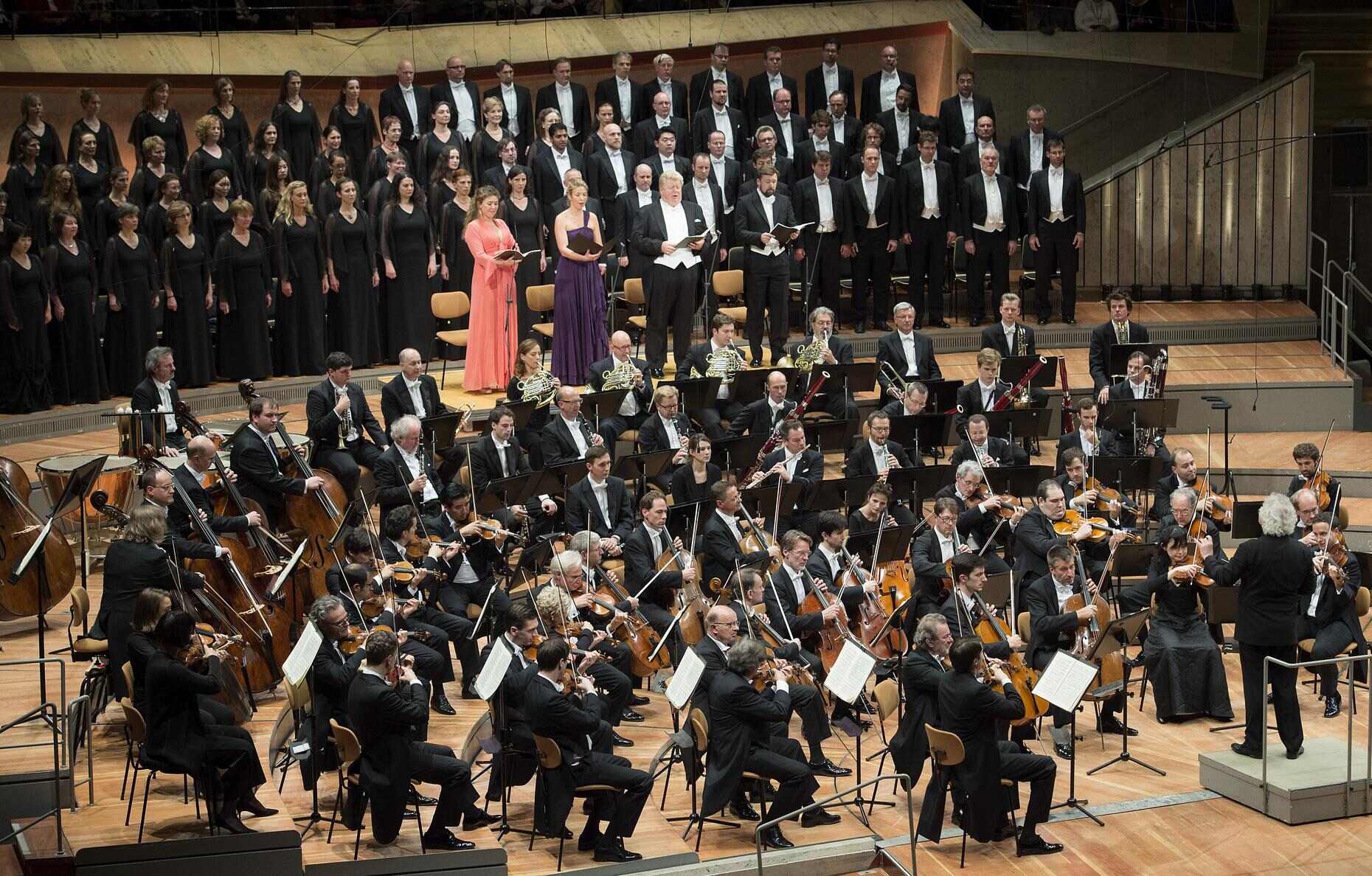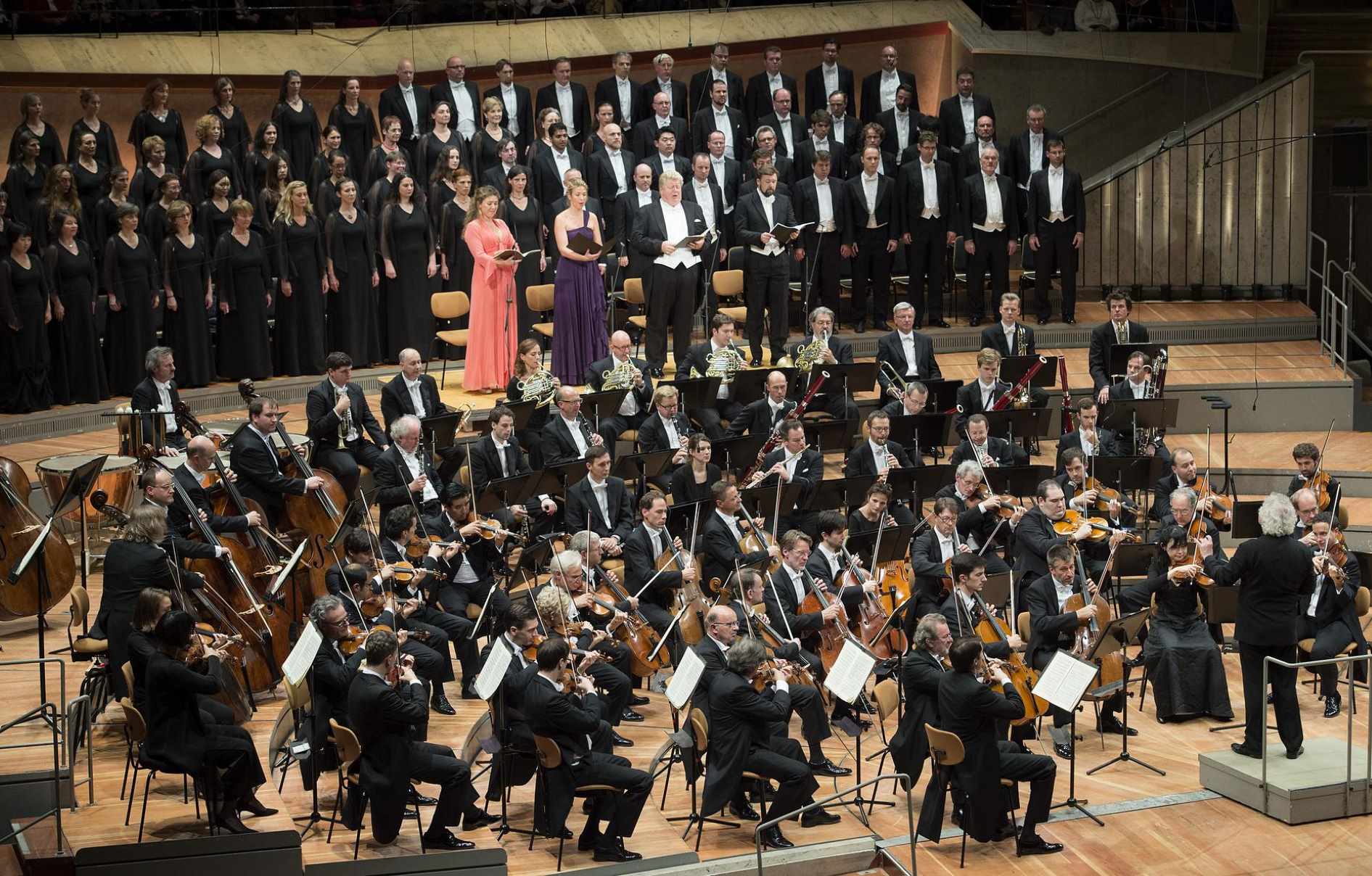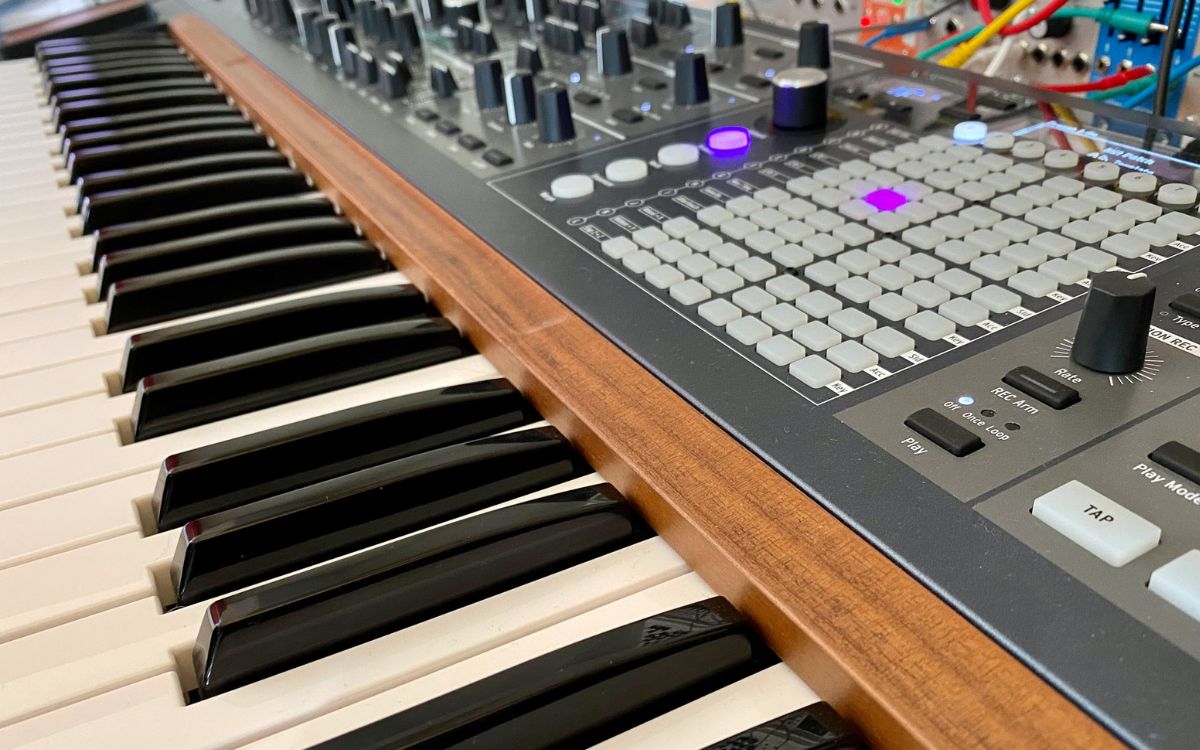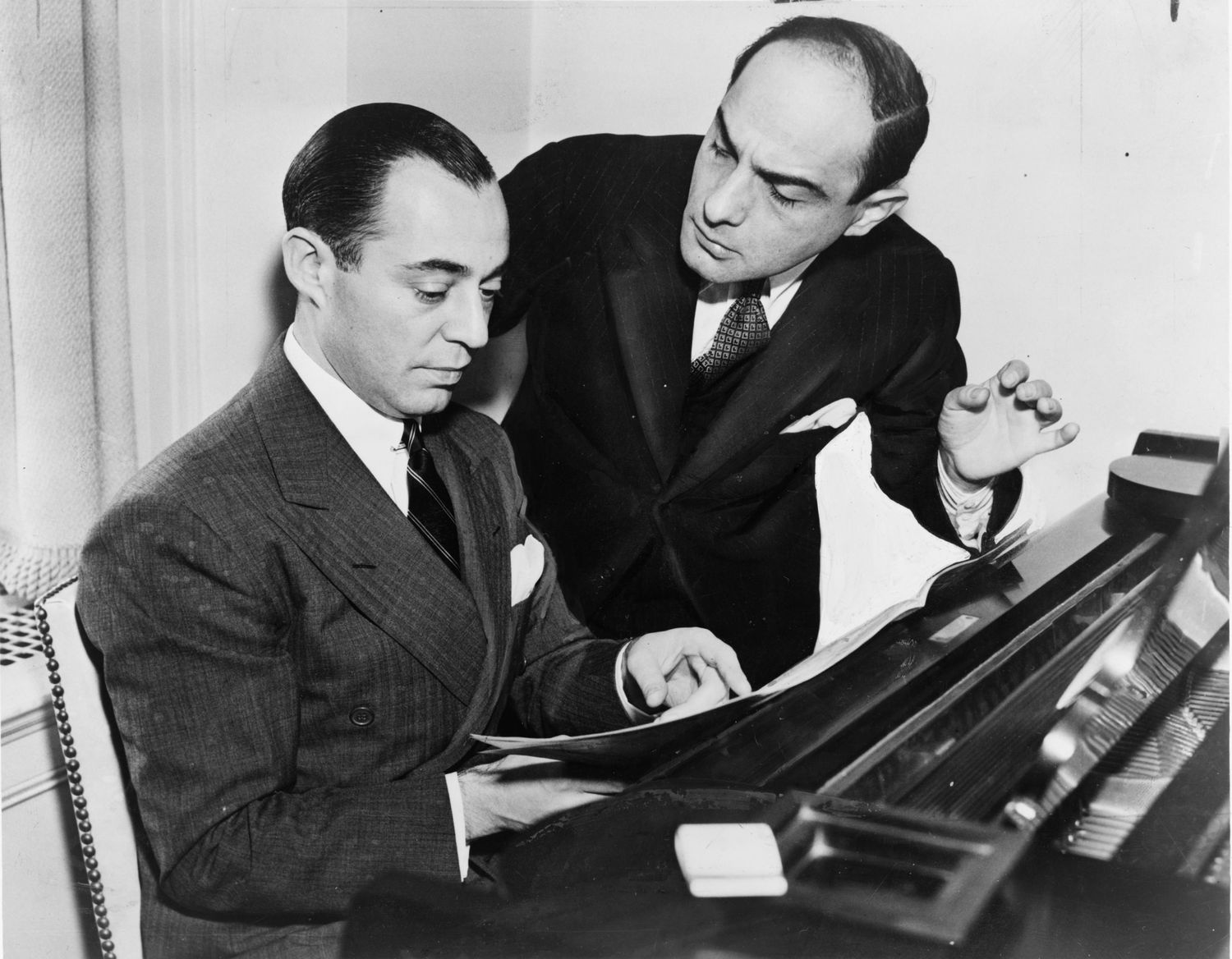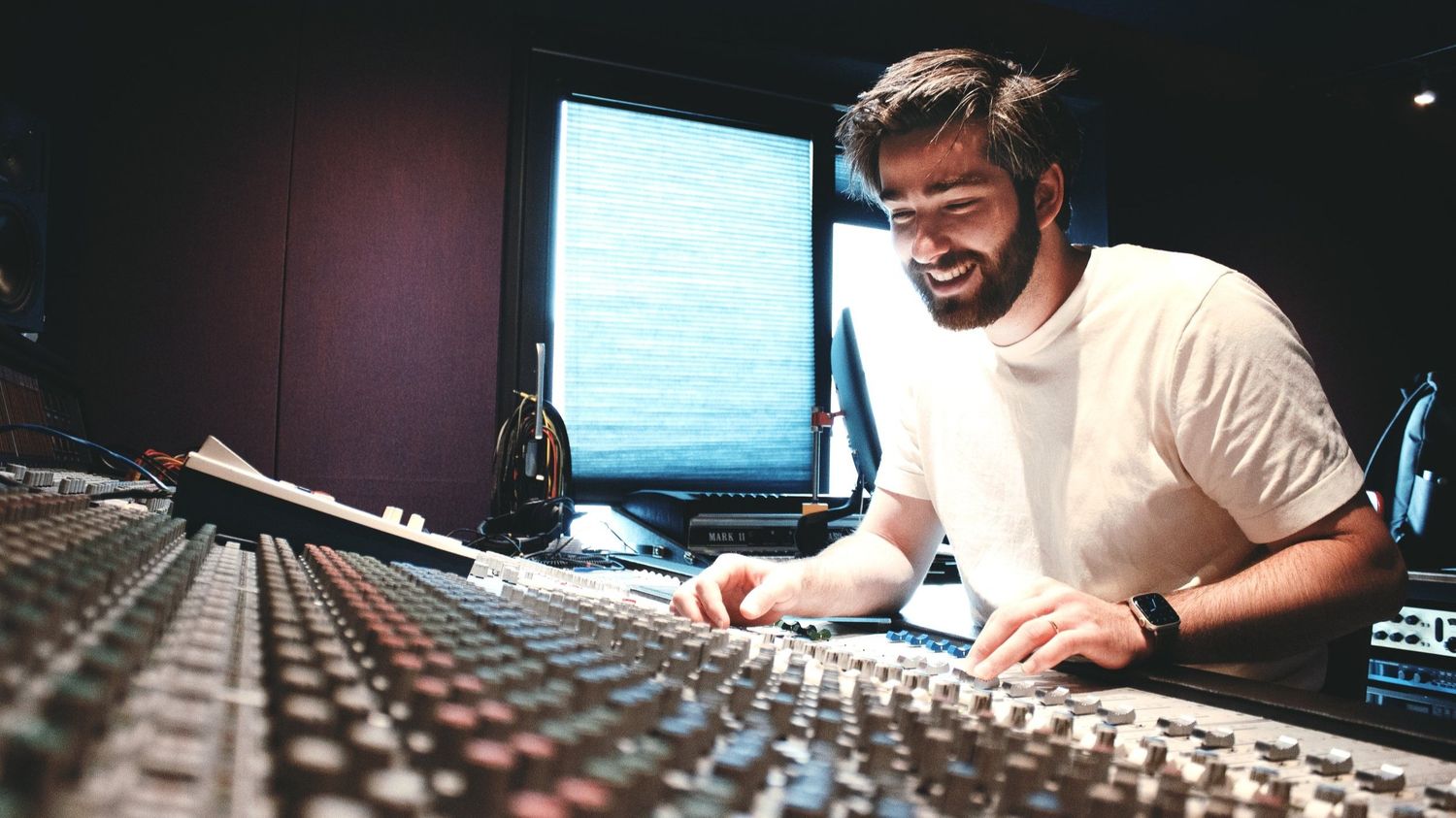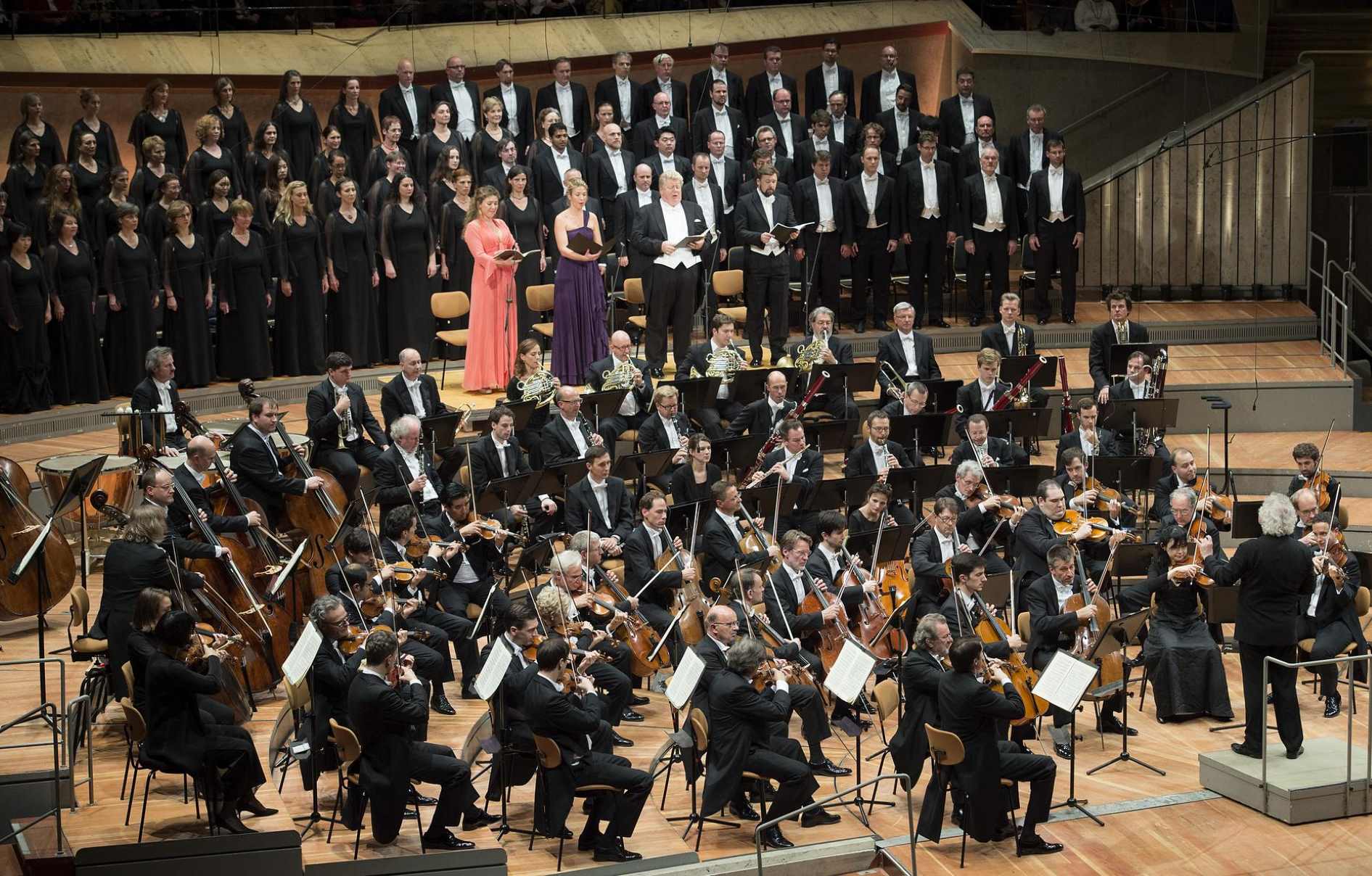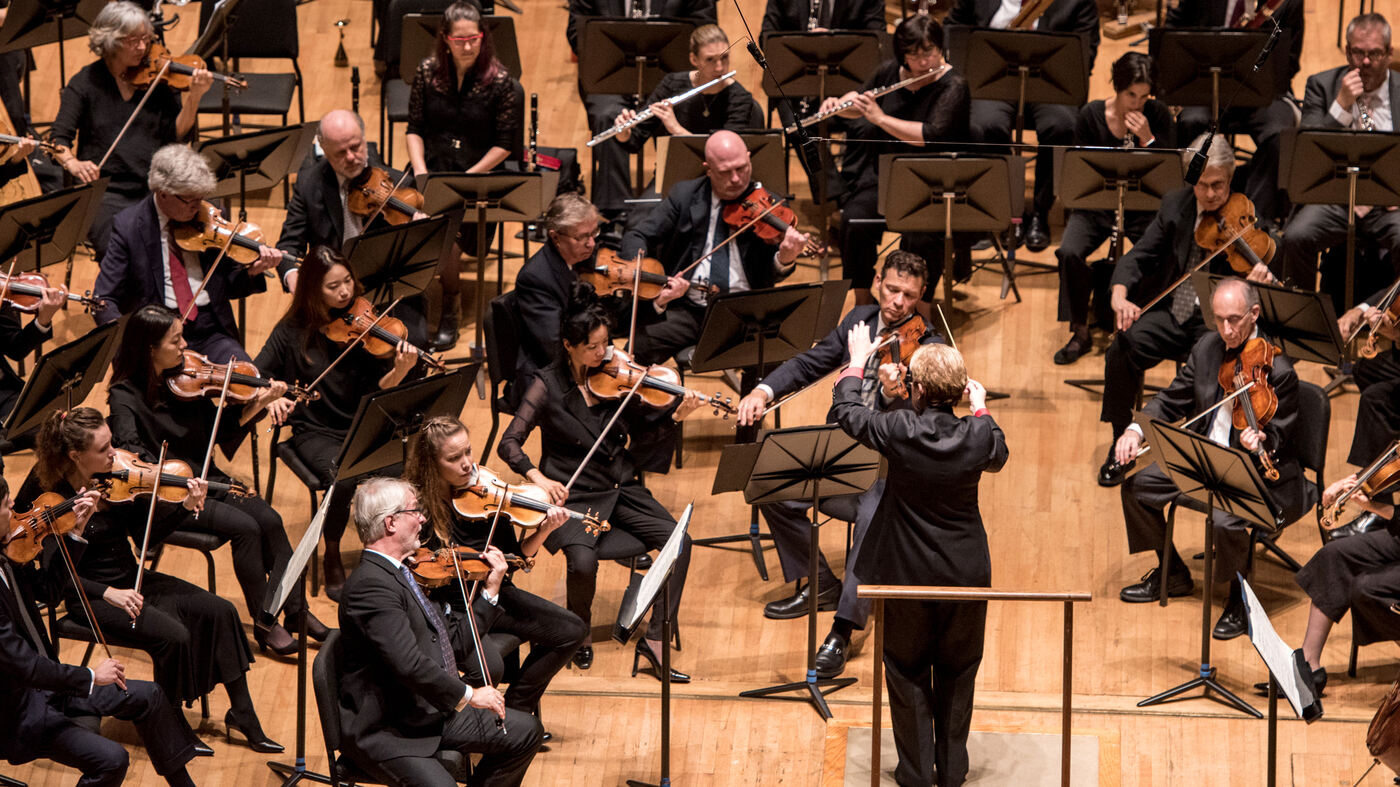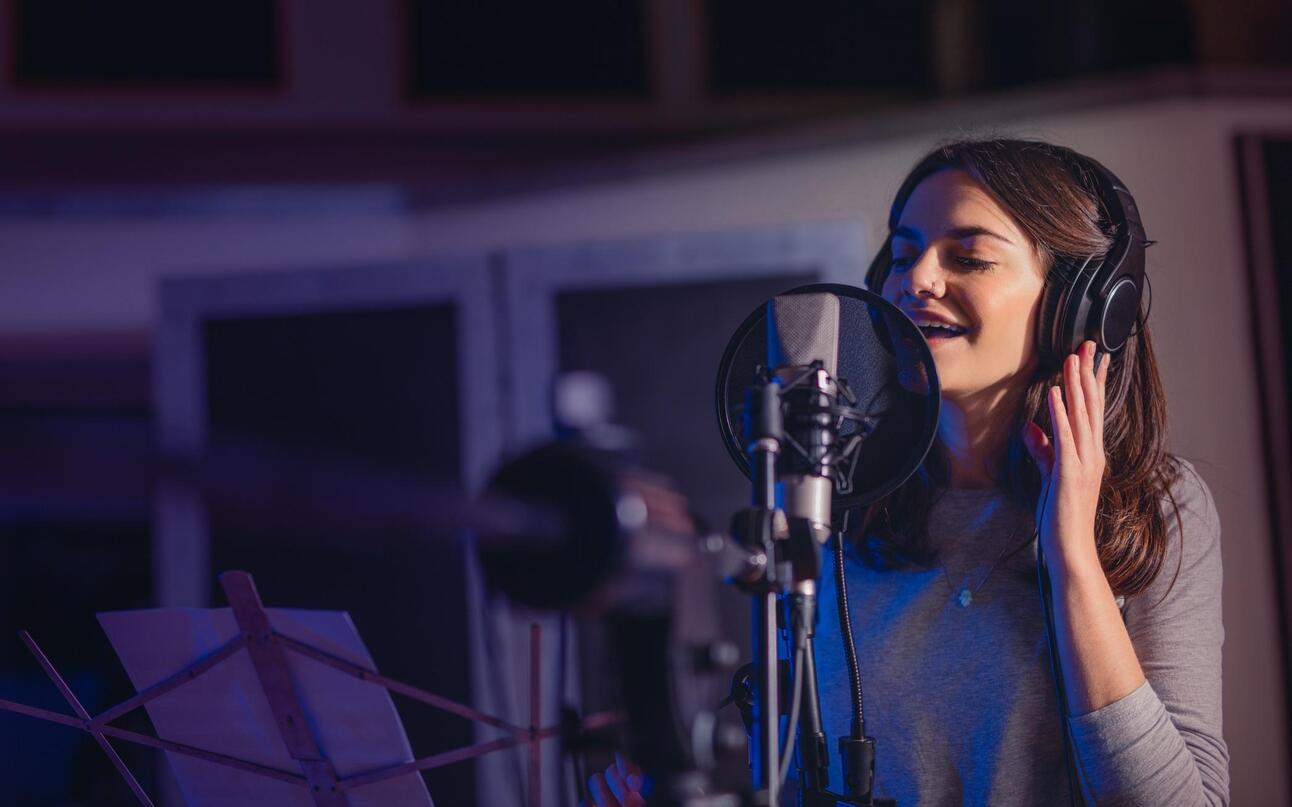Home>Production & Technology>Sound Engineer>What Is The Difference Between A Producer And A Sound Engineer
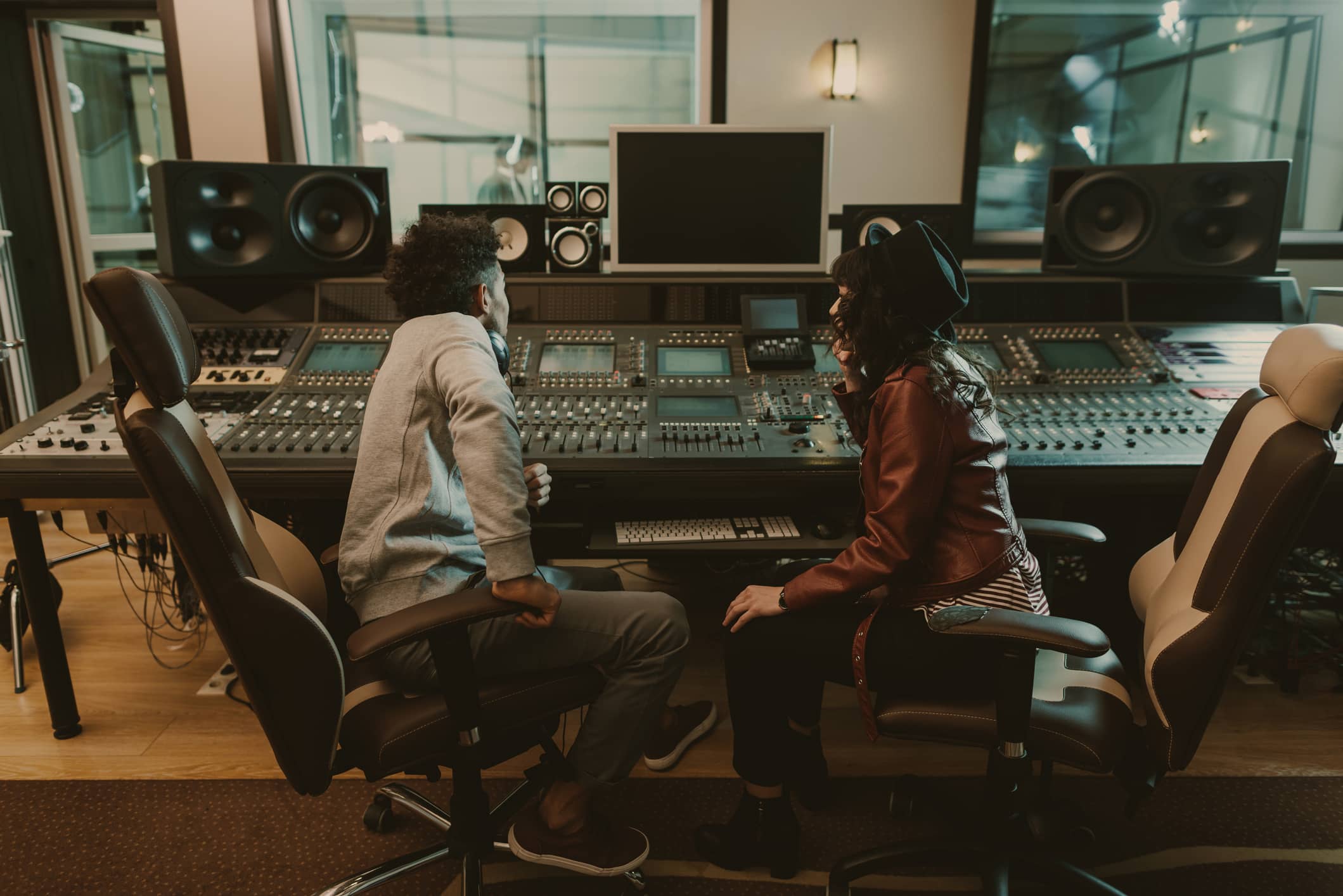

Sound Engineer
What Is The Difference Between A Producer And A Sound Engineer
Published: March 7, 2024
Discover the key disparities between a producer and a sound engineer. Uncover their unique roles and contributions to the music production process. Gain insights into the distinctions between these crucial roles in the music industry.
(Many of the links in this article redirect to a specific reviewed product. Your purchase of these products through affiliate links helps to generate commission for AudioLover.com, at no extra cost. Learn more)
Table of Contents
Introduction
In the realm of music production and sound engineering, the roles of a producer and a sound engineer are often intertwined, yet distinct in their functions and contributions to the creation of music. Understanding the difference between these two pivotal roles is essential for aspiring music professionals and enthusiasts alike.
While both the producer and the sound engineer play crucial roles in the music-making process, their areas of focus and expertise differ significantly. The producer is the visionary behind the artistic direction of a recording, overseeing the creative aspects of the music, such as song arrangements, instrumentation, and performance quality. On the other hand, the sound engineer is responsible for the technical aspects of recording, mixing, and mastering, ensuring that the sonic elements of the music are captured and presented in the best possible light.
As we delve deeper into the nuances of these roles, it becomes evident that the producer and the sound engineer are integral parts of the music production ecosystem, each bringing a unique set of skills and perspectives to the table. By exploring their respective roles, responsibilities, skill sets, training, and career paths, we can gain a comprehensive understanding of the distinct yet interconnected nature of these two professions in the music industry.
Roles and Responsibilities
The roles and responsibilities of a music producer and a sound engineer are distinct yet complementary, each contributing essential elements to the creation of a high-quality music production.
Music Producer
The music producer serves as the creative visionary behind the recording process. Their primary responsibility is to guide the artistic direction of a project, working closely with the artists to bring their musical vision to life. Producers are involved in every stage of the production, from pre-production planning to the final mix. They provide valuable input on song arrangements, instrumentation, and overall sound aesthetics, aiming to achieve a cohesive and impactful sonic experience. Additionally, producers often collaborate with artists to elicit the best performances, offering guidance and feedback to enhance the emotional impact of the music. Their role extends beyond the technical aspects, as they also oversee the project's budget, scheduling, and coordination of resources to ensure a smooth and efficient production process.
Sound Engineer
In contrast, the sound engineer focuses on the technical aspects of capturing, shaping, and presenting the sonic elements of a recording. Their responsibilities encompass operating recording equipment, setting up microphones, and ensuring optimal sound quality during the recording sessions. Sound engineers are adept at utilizing various recording techniques and equipment to capture the nuances of musical performances, striving to achieve clarity, balance, and sonic fidelity. During the mixing and mastering stages, they meticulously balance and process individual tracks, applying equalization, compression, and other audio effects to enhance the overall sound. Additionally, sound engineers collaborate with producers and artists to translate creative visions into technical reality, leveraging their expertise to achieve the desired sonic impact while adhering to industry standards and best practices.
Collaboration and Synergy
While the producer and sound engineer have distinct roles, their collaboration is essential for the success of a music production. The producer's creative direction and the sound engineer's technical expertise intertwine harmoniously, with each contributing to the overall sonic identity of the music. Effective communication and mutual respect between these roles are crucial, as they work together to translate artistic visions into captivating sonic experiences. This collaborative synergy often results in the seamless integration of creative expression and technical precision, culminating in a compelling and polished music production.
In essence, the roles and responsibilities of a music producer and a sound engineer are complementary, with each playing a vital part in the creation of impactful and memorable music. Their distinct yet interconnected contributions underscore the dynamic nature of music production, where creativity and technical proficiency converge to shape the sonic landscape of the industry.
Skill Sets
The skill sets required for a music producer and a sound engineer encompass a diverse range of competencies, reflecting the multifaceted nature of their respective roles.
Music Producer
A proficient music producer possesses a keen understanding of musical theory, composition, and arrangement, enabling them to guide artists in crafting compelling and cohesive musical pieces. Strong interpersonal and communication skills are essential, as producers collaborate closely with artists to nurture creative ideas and elicit emotive performances. Additionally, a deep appreciation for various music genres and styles empowers producers to adapt their creative vision to diverse artistic expressions, fostering versatility and adaptability in their approach. Business acumen and project management skills are also valuable, as producers oversee the logistical and financial aspects of music production, ensuring efficient resource allocation and project execution.
Sound Engineer
Sound engineers demonstrate technical prowess in operating recording equipment, utilizing digital audio workstations, and implementing sound processing techniques to capture and enhance the sonic elements of a recording. Proficiency in audio mixing and mastering is paramount, as engineers meticulously balance and refine individual tracks to achieve sonic clarity, depth, and impact. A comprehensive understanding of acoustics, signal flow, and audio signal processing equips sound engineers to troubleshoot technical challenges and optimize recording environments for superior sound quality. Moreover, critical listening skills and attention to detail are integral, enabling engineers to discern subtle nuances in musical performances and make informed decisions to enhance the overall sonic landscape.
Overlapping Skills
While the skill sets of a music producer and a sound engineer differ in focus, there are overlapping competencies that contribute to their collaborative synergy. Both roles benefit from creativity, adaptability, and a passion for sonic excellence. Effective communication and teamwork skills are essential for fostering a harmonious working relationship, enabling seamless collaboration and the realization of artistic visions. Furthermore, technological proficiency and a commitment to continuous learning are vital, as advancements in recording technology and sound processing techniques continually shape the landscape of music production.
In essence, the skill sets of a music producer and a sound engineer encompass a rich tapestry of artistic, technical, and interpersonal competencies, reflecting the dynamic and multifaceted nature of music production. By honing these skills, professionals in these roles can elevate the quality and impact of music productions, contributing to the vibrant tapestry of the music industry.
Training and Education
Training and education play pivotal roles in shaping the expertise and proficiency of music producers and sound engineers, providing the foundation for their respective careers in the dynamic realm of music production.
Music Producer
Aspiring music producers often pursue a diverse educational path, drawing from a combination of formal education, practical experience, and mentorship. Many producers enroll in music production or audio engineering programs offered by renowned institutions, where they gain theoretical knowledge and hands-on experience in recording techniques, music theory, and studio management. These programs often provide valuable insights into the creative and technical aspects of music production, equipping aspiring producers with a comprehensive understanding of the industry landscape.
Furthermore, mentorship and apprenticeship opportunities are invaluable for emerging producers, as they offer firsthand exposure to real-world production scenarios and the opportunity to learn from seasoned professionals. Working alongside established producers provides invaluable insights into the nuances of artistic direction, studio dynamics, and the collaborative process with artists, enriching the aspiring producer's skill set and industry acumen.
Sound Engineer
Similarly, sound engineers embark on a journey of education and training that encompasses technical proficiency, critical listening skills, and a deep understanding of audio technology. Many aspiring sound engineers pursue formal education in audio engineering, acoustics, or sound production, delving into the intricacies of sound capture, processing, and reproduction. These programs often emphasize practical training in recording studios, live sound environments, and post-production facilities, allowing students to apply theoretical knowledge in real-world settings.
In addition to formal education, sound engineers benefit from specialized training in audio equipment operation, digital audio workstations, and sound processing software. Hands-on experience with industry-standard recording gear and software platforms hones their technical prowess and fosters adaptability in navigating diverse recording environments and technological advancements.
Continuous Learning
Beyond formal education, both music producers and sound engineers engage in continuous learning and skill refinement throughout their careers. Staying abreast of evolving recording technologies, industry trends, and sonic innovations is essential for remaining competitive and relevant in the dynamic music landscape. Professional development workshops, industry conferences, and online resources serve as valuable avenues for ongoing education, enabling producers and engineers to expand their knowledge, network with peers, and embrace emerging techniques and tools.
In essence, the training and education of music producers and sound engineers encompass a blend of formal instruction, practical experience, mentorship, and continuous learning. This multifaceted approach equips professionals with the knowledge, skills, and adaptability to thrive in the ever-evolving realm of music production, contributing to the vibrancy and innovation of the industry.
Career Paths
The career paths of music producers and sound engineers unfold along distinct yet interconnected trajectories, shaped by a blend of experience, expertise, and industry dynamics.
Music Producer
Music producers often embark on their career paths by honing their craft through hands-on experience in recording studios, collaborating with emerging artists, and cultivating a signature production style. As they gain recognition for their creative vision and ability to translate artistic concepts into compelling musical productions, producers may expand their professional network and attract opportunities to work with established artists and industry influencers. This progression often involves building a diverse portfolio of successful projects, showcasing their versatility across genres and their ability to deliver commercially and critically acclaimed music.
Furthermore, experienced music producers may venture into entrepreneurship, establishing their own production companies or record labels to nurture emerging talent and curate innovative music projects. This entrepreneurial path empowers producers to shape the artistic landscape, discover new voices, and contribute to the evolution of musical trends. Additionally, some producers transition into roles as music directors for live performances, film scoring, or multimedia productions, leveraging their expertise to orchestrate captivating sonic experiences across diverse platforms.
Sound Engineer
Sound engineers chart their career paths by gaining practical experience in recording studios, live sound reinforcement, and post-production facilities, refining their technical proficiency and sonic acumen. As they demonstrate mastery in capturing and shaping sound, engineers may advance to roles with renowned recording studios, production houses, or entertainment companies, where they contribute to high-profile projects and collaborate with esteemed artists and producers. This progression often involves specialization in specific genres or technical niches, such as mastering engineering, live sound mixing, or immersive audio production, allowing engineers to carve out a distinct professional identity.
Moreover, experienced sound engineers may explore freelance opportunities, offering their expertise to a diverse clientele of artists, studios, and media companies. This entrepreneurial path enables engineers to exercise creative autonomy, pursue innovative sonic projects, and expand their professional network across the music and entertainment industry. Additionally, some sound engineers transition into roles as audio technology consultants, educators, or product specialists, leveraging their expertise to shape the next generation of recording technologies and mentor aspiring audio professionals.
In essence, the career paths of music producers and sound engineers are characterized by a blend of artistic evolution, technical mastery, and entrepreneurial spirit. As they navigate these dynamic paths, professionals in these roles contribute to the rich tapestry of the music industry, shaping the sonic landscape and inspiring the next generation of creative visionaries and technical innovators.
Collaboration and Communication
Collaboration and communication form the cornerstone of a successful partnership between music producers and sound engineers. The seamless integration of creative vision and technical expertise hinges on effective communication, mutual respect, and a shared commitment to realizing the artistic potential of a music production.
At the heart of this collaboration is the alignment of artistic intent and technical execution. Music producers articulate their creative vision, guiding the emotional narrative of a song and envisioning the sonic tapestry that will captivate listeners. Through open dialogue and a deep understanding of the producer's vision, sound engineers translate these artistic concepts into technical reality, leveraging their expertise to capture, refine, and enhance the sonic elements of the music. This collaborative synergy ensures that the artistic essence of the music remains at the forefront, harmonizing with technical precision to create a compelling and immersive sonic experience.
Effective communication between producers and sound engineers is paramount, fostering a shared language that bridges the realms of creativity and technology. Producers articulate their creative preferences, offering insights into the emotional nuances they seek to convey through the music. Sound engineers, in turn, leverage their technical acumen to translate these preferences into tangible sonic elements, engaging in a dialogue that balances artistic expression with technical feasibility. This exchange of ideas, feedback, and insights cultivates a collaborative environment where the strengths of both the producer and the sound engineer converge, elevating the music production to new heights.
Moreover, mutual respect and trust underpin the collaborative dynamic between producers and sound engineers. Recognizing the unique expertise and perspectives that each role brings to the table fosters a harmonious working relationship, where creative exploration and technical innovation coalesce. This mutual respect empowers both parties to contribute their best work, knowing that their collaborative efforts are valued and essential to the success of the music production.
In essence, collaboration and communication between music producers and sound engineers are characterized by a symbiotic relationship, where the fusion of artistic vision and technical prowess gives rise to captivating and impactful music. This collaborative synergy underscores the interconnected nature of these roles, highlighting the transformative power of unified creativity and technical excellence in shaping the sonic landscape of the music industry.
Conclusion
In conclusion, the distinction between a music producer and a sound engineer is pivotal in understanding the multifaceted nature of music production. While the producer serves as the creative visionary, guiding the artistic direction and emotional narrative of a recording, the sound engineer harnesses technical expertise to capture, refine, and enhance the sonic elements of the music. Their collaborative synergy, rooted in effective communication, mutual respect, and a shared commitment to artistic excellence, underscores the dynamic interplay between creativity and technology in shaping the sonic landscape of the music industry.
The roles and responsibilities of a music producer and a sound engineer are complementary, each contributing essential elements to the creation of a high-quality music production. The producer's creative direction and the sound engineer's technical expertise intertwine harmoniously, with each playing a vital part in the creation of impactful and memorable music. Their distinct yet interconnected contributions underscore the dynamic nature of music production, where creativity and technical proficiency converge to shape the sonic identity of the industry.
Furthermore, the skill sets required for a music producer and a sound engineer encompass a diverse range of competencies, reflecting the multifaceted nature of their respective roles. While the producer draws from a blend of musical theory, composition, and interpersonal skills, the sound engineer demonstrates technical prowess in operating recording equipment, critical listening, and sound processing techniques. This convergence of artistic, technical, and interpersonal competencies underscores the dynamic and multifaceted nature of music production.
The training and education of music producers and sound engineers encompass a blend of formal instruction, practical experience, mentorship, and continuous learning. This multifaceted approach equips professionals with the knowledge, skills, and adaptability to thrive in the ever-evolving realm of music production, contributing to the vibrancy and innovation of the industry.
The career paths of music producers and sound engineers unfold along distinct yet interconnected trajectories, shaped by a blend of experience, expertise, and industry dynamics. As they navigate these dynamic paths, professionals in these roles contribute to the rich tapestry of the music industry, shaping the sonic landscape and inspiring the next generation of creative visionaries and technical innovators.
In essence, the collaboration and communication between music producers and sound engineers are characterized by a symbiotic relationship, where the fusion of artistic vision and technical prowess gives rise to captivating and impactful music. This collaborative synergy underscores the interconnected nature of these roles, highlighting the transformative power of unified creativity and technical excellence in shaping the sonic landscape of the music industry.
Overall, the distinct yet interconnected roles of a music producer and a sound engineer underscore the dynamic interplay between creativity and technology in the vibrant realm of music production. Their collaborative synergy, rooted in effective communication, mutual respect, and a shared commitment to artistic excellence, exemplifies the transformative power of unified creativity and technical prowess in shaping the sonic landscape of the music industry.

